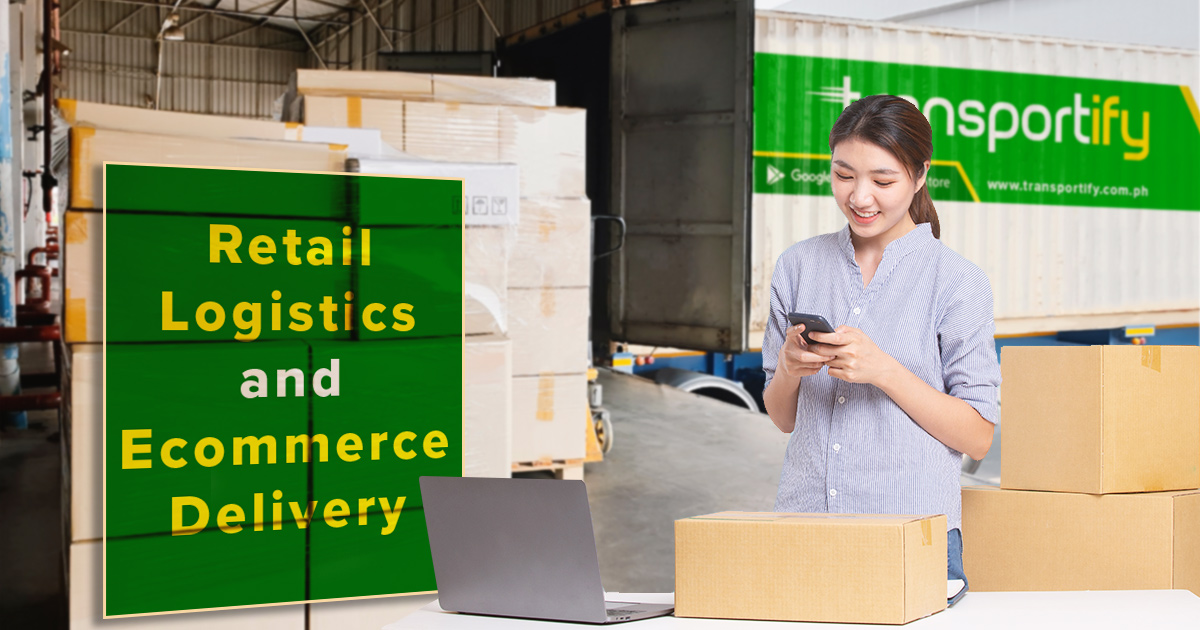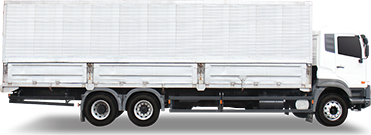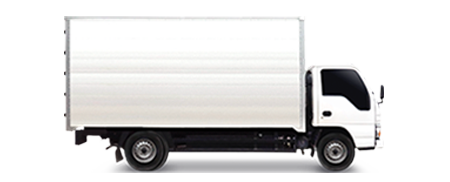
Is your ecommerce delivery strategy reliable for your customers? How do you address if you sent the wrong thing or missed a date? Nowadays, ecommerce is well-known in the digitized world, and many companies have used it to grow their consumer base. Yet, ecommerce delivery and retail logistics are the most crucial components which many businesses overlook.
Delivering orders to clients is challenging as the ecommerce sector expands. This is particularly true in light of the coronavirus’s influence on entire ecommerce supply chains. In addition, consumers don’t like to wait, which is more true than ever. The promised delivery time can thus influence whether a customer shops at your online store or one of your competitors.
This article will dive into how ecommerce delivery and retail logistics operate. Also, how it differs, provides better alternatives, and why ecommerce organizations now rely on third-party logistics like Transportify.
E-commerce has established itself as the preferred mode of payment worldwide. The ecommerce delivery and retail logistics depend on fulfillment and delivery skills. Because of this, consumer expectations form the rise of satisfactory delivery. One aspect of ecommerce delivery and retail logistics is that you must get delivery right. Customers’ needs have changed, and the majority now demand a quick, dependable ecommerce delivery and retail logistics service. Let’s now explore these areas.
How Do You Define Retail Logistics and Ecommerce Delivery?
What is Retail Logistics?
The process of efficiently moving merchandise from the supplier to the customer is known as “retail logistics.”These end-to-end supply chains need a high degree of synchronization and collaboration. Both of which are being made easier by technology. Retail logistics systems are dynamic and customer-focused. Different items on the market today call for a planned strategy from the beginning to the point of delivery. By using effective retail logistics and added value, retail logistics makes sure everything is in place to provide better delivery and service at a reduced cost.
What is E-commerce Delivery?
The term “e-commerce delivery” refers to commercial enterprises that sell things over the internet. It is used to make delivery easier and more controllable. But as online shopping grows in popularity and businesses compete to offer the greatest online shopping experience at the lowest price, retail logistics has also evolved to signify a few other things. With big stores like Amazon, Shopee, Lazada, Carousell, Tiktok, and Facebook Marketplace ecommerce delivery has grown more competitive than ever, allowing customers to shop more. However, to keep up and please consumer expectations, you’ll need to locate faster, less expensive, and more effective shipping resources.
Supply and demand disruptions, inventory delays, worldwide lockdowns, shifting trade laws, and changing consumer buying habits present issues for business owners. It’s more crucial than ever to incorporate flexibility into your supply chain. When you work with the proper 3PL, the difficulties of overseeing retail logistics are taken off your plate and placed in the hands of professionals.
Vehicle Type Dimensions/
Weight LimitsBase Price
(Metro Manila)Base Price
(Outside Metro Manila) Base Price
(Visayas/Mindanao) Wing Van
Wing Van 32 to 40 x 7.8 x 7.8 ft
12000kg to 28000kg7000 PHP 6500 PHP 6500 PHP ![]() 6w Fwd Truck
6w Fwd Truck18 x 6 x 7 ft
7000kg4850 PHP 4850 PHP 4850 PHP  Closed Van
Closed Van10 to 14 x 6 x 6 ft
2000kg to 4000kg1600 PHP 1450 PHP 1450 PHP  Open Truck
Open Truck10 to 21 x 6 ft x open
2000kg and 7000kg2300 PHP 1950 PHP 1950 PHP  L300/Van
L300/Van8 x 4.5 x 4.5 ft
1000kg415 PHP 374 PHP 335 PHP  Small Pickup
Small Pickup5 x 5 ft x open
1000kg418 PHP 338 PHP 325 PHP ![]() Light Van
Light Van5.5 x 3.8 x 3.8 ft
600kg375 PHP 292 PHP 275 PHP ![]() MPV/SUV
MPV/SUV5 x 3.2 x 2.8 ft
200kg240 PHP 210 PHP 160 PHP ![]() Sedan
Sedan3.5 x 2 x 2.5 ft
200kg220 PHP 190 PHP 140 PHP
How Can Logistics Apps Help in Ecommerce Delivery and Retail Logistics?
Technology is playing a vital role in revolutionizing the ecommerce shipping industry. In this case, an ecommerce logistics app can help businesses with deliveries and retail logistics. Ecommerce logistics apps are designed to reduce friction at every stage of the product’s lifecycle, from warehousing to last-mile delivery. By using an ecommerce logistics app, businesses can manage the following department with greater ease:
- inventory
- track their shipments
- automate their processes
- provide a better customer experience.
Ecommerce logistics apps make it easier for businesses to connect with third-party logistics (3PL) providers. 3PLs are companies that provide outsourced or external logistics services to other companies.
These services include the following:
- transportation
- warehousing
- cross-docking
- inventory management
- packaging
- freight forwarding
3PLs can help businesses with ecommerce delivery and retail logistics by providing a wide range of services, including order fulfillment, shipping, returns management, and much more. When looking for an ecommerce logistics app, it’s important to find one that integrates with your existing systems and processes. It should also be user-friendly and offer a variety of features, such as real-time tracking, shipment visibility, order management, and customer support.
- Online Delivery Service Philippines
- Growth of Freight Companies: eCommerce Logistics
- Logistics in the Philippines: Freight Trucking Companies
Things to Consider When Improving Your Logistics
There are many methods to improve ecommerce delivery and retail logistics services as a business owner. The following are the top five:
Provide a range of delivery methods
Make sure you provide your consumers a variety of ecommerce delivery options if you haven’t previously. As was already noted, retail logistics service has become the standard, and any company that doesn’t offer it will see a decline in sales. Your clients will be happier if you offer more options. Two popular options today are Full Truckload and Less Than Truckload services.
Lowered cost of delivery
Customers especially value ecommerce delivery choices that are free or discounted. When a customer spends a certain amount, several businesses provide free delivery. Offering special delivery services in retail logistics might stimulate increased spending and bring in new clients for your company. It may mean the difference between a customer leaving to buy the same thing somewhere else. Even though it can appear like you are losing money, retail logistics strategies like lower delivery costs might boost sales.
Select the ideal logistics provider
Selecting a bad 3PL is one costly error you may make with your retail logistics. Don’t consider the price when selecting the best courier for your business. To satisfy your consumers, you must ensure you’re employing a cheap but trustworthy courier service like Transportify. Some small businesses might manage their retail logistics. Still, a courier becomes essential as demand rises to ease your worry and free up your time for other aspects of the business.
Tracking capabilities and real-time updates
It is advised that parcels be traced due to the possibility of confusion resulting from many orders. This enables the company to keep track of every shipped cargo. If a problem arises, it can be immediately fixed because the parcel’s most recent location is known.
Increasing service levels for customer satisfaction
Customer satisfaction must be the top priority in whatever you do. It is because customers are the most crucial component of any business. When offering a delivery service, nothing changes in this regard. Customers expect to be kept in the loop from their encounters. Customers depend on updates, showing them that a business is concerned about obtaining their goods.
Your reputation is everything in ecommerce. Even one consumer leaving a bad review about your delivery service will discourage other customers from doing business with you. That is why it is important to seek help from experts or do business with a trustworthy logistics provider like Transportify.
Why Is Efficient Delivery So Important in Ecommerce?
Efficient delivery is essential in ecommerce because it helps to ensure that orders are delivered on time and in good condition. It also helps to build trust between businesses and their customers. When customers are happy with their delivery experience, they’re more likely to buy from the same business again in the future.
Consider these factors when designing an efficient delivery process:
- frequency
- geographic location
- product type
- delivery time
Finding a balance between speed and cost is important when designing an efficient delivery process. For example, if you’re selling perishable goods, getting them to your customers as quickly as possible is important. However, if you’re selling non-perishable goods, you may be able to save money by shipping them via a slower but cheaper method.
It’s also important to consider the customer’s perspective when designing an efficient delivery process. Make sure that your customers know when to expect their order and provide tracking information so they can follow its progress. It’s also a good idea to offer customer support if there are any problems with the delivery.
 | or |
Frequently Asked Questions:
What is retail logistics?
🚚 Retail logistics is the process of organizing and managing the storage, transportation, and distribution of goods and materials in a retail setting. It includes everything from managing inventory levels and stock locations to coordinating delivery schedules and ensuring that products arrive at the correct stores at the right time. An effective retail logistics operation is critical to the success of any retail business. It can help businesses to reduce costs, improve customer service, and increase sales.
What is the importance of technology in ecommerce delivery?
🚚 Ecommerce delivery is highly dependent on technology. This is because technology provides the means for ecommerce businesses to reach their customers quickly and efficiently. Delivery companies use various technologies to manage their operations, including GPS tracking, electronic data interchange (EDI), and online order management systems. The use of technology in ecommerce delivery is constantly evolving. As new technologies are developed, ecommerce companies must adopt them to stay competitive




 INSTANT QUOTE
INSTANT QUOTE

 Chat
Chat